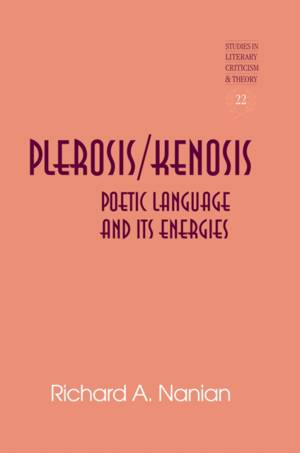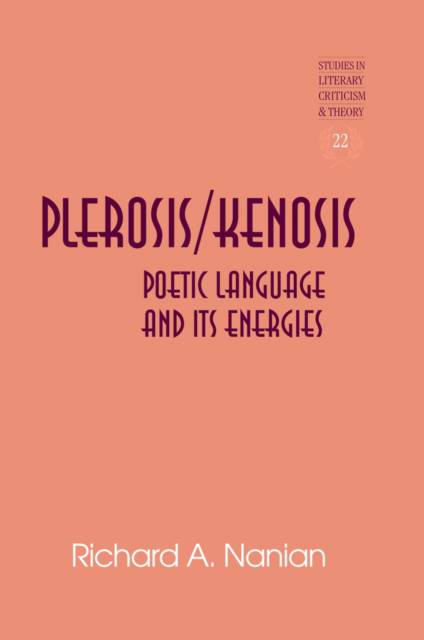
- Afhalen na 1 uur in een winkel met voorraad
- Gratis thuislevering in België vanaf € 30
- Ruim aanbod met 7 miljoen producten
- Afhalen na 1 uur in een winkel met voorraad
- Gratis thuislevering in België vanaf € 30
- Ruim aanbod met 7 miljoen producten
Zoeken
Omschrijving
Why do readers report being powerfully affected by great poetry? What happens to us when we read a poem? Literary criticism has struggled to answer these questions because it treats poems as material artifacts of one kind or another. But readers do not experience literary texts as lifeless and silent material artifacts. They hear voices in them and feel moved and altered by them. Plerosis/Kenosis offers a new way of reading poems by treating poems as dynamic - essentially as fields of energy - and by focusing on how poetry pushes language towards two contradictory goals: the desire to say more, to convey universal truths, and overwhelm the reader with intensity; and the desire to speak with perfect clarity and precision, to achieve the purity of mathematics or logic. The pursuit of both goals inevitably ends in failure, but poetry is most powerful and most affecting as it approaches these two extremes. Plerosis/Kenosis lays out a theory of poetic language and applies that theory to a wide range of beloved works by, among others, Shakespeare, Wordsworth, Coleridge, Keats, Poe, Whitman, Dickinson, Eliot, and Stevens. The theory establishes a framework that allows readers of poetry everywhere to articulate what a poem does to them when they read it, and the specific readings are original and illuminating. Moreover, the style throughout is lucid and accessible. Scholars, graduate students, and sophisticated undergraduates alike will find their understanding of poetry not only increased but indeed transformed.
Specificaties
Betrokkenen
- Auteur(s):
- Uitgeverij:
Inhoud
- Aantal bladzijden:
- 291
- Taal:
- Engels
- Reeks:
- Reeksnummer:
- nr. 22
Eigenschappen
- Productcode (EAN):
- 9781433119361
- Verschijningsdatum:
- 12/07/2012
- Uitvoering:
- Hardcover
- Formaat:
- Genaaid
- Afmetingen:
- 152 mm x 229 mm
- Gewicht:
- 580 g

Alleen bij Standaard Boekhandel
+ 374 punten op je klantenkaart van Standaard Boekhandel
Beoordelingen
We publiceren alleen reviews die voldoen aan de voorwaarden voor reviews. Bekijk onze voorwaarden voor reviews.











